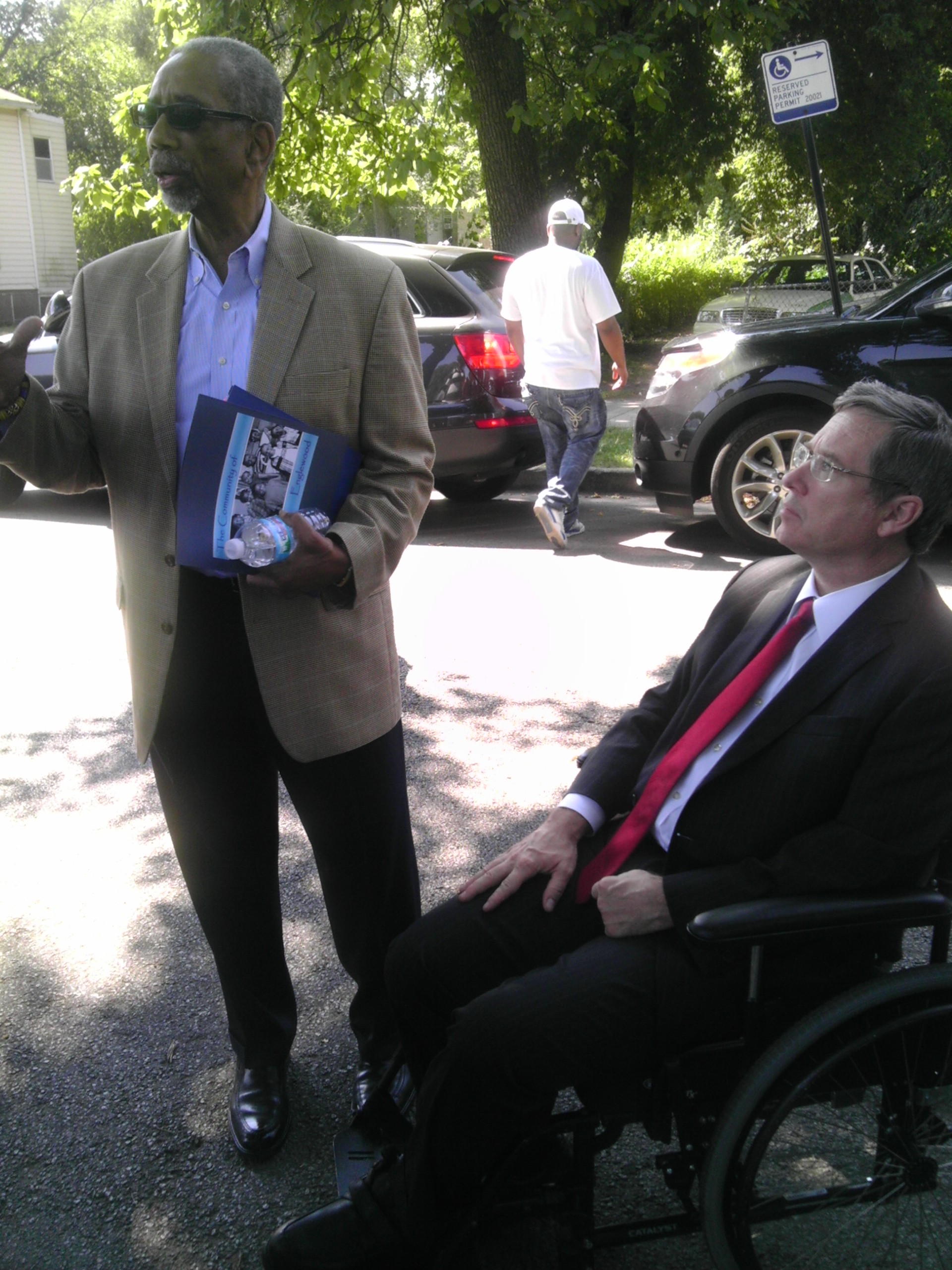Sen. Kirk meets residents on tour of Englewood to understand violence
By Natalie Moore

Sen. Kirk meets residents on tour of Englewood to understand violence
By Natalie Moore
In addition, Kirk said he plans to push for a bill that would encourage investment by giving federal tax breaks to investors who develop on blighted commercial property in cities around the country. The Urban Empowerment Act would be a tool for land that hadn’t seen significant activity in the last two years. Kirk made the announcement to a group of residents in Chicago’s Englewood neighborhood on Thursday.
“That would make places like very urban Chicago very interesting to invest in,” Kirk said.
The freshman Republican senator visited Englewood as part of a deal with Chicago Democratic congressman Bobby Rush to help smooth over tensions from earlier this year. In May, Kirk proposed spending $500 million in federal funds to arrest 18,000 members of the Gangster Disciples street gang as a solution to combat violence. Rush responded that Kirk’s idea was an “upper-middle-class, elitist white boy solution to a problem he knows nothing about.”
The two politicians met after those remarks, and Rush promised to show Kirk around Englewood – a black community burdened by violence and poverty that is also home to flourishing block clubs and vocal neighbors.
The day began on 67th Street at Ryan Harris Park, named after an 11-year-old whose raped and murdered body was found in a vacant lot in 1998. The lawmakers proceeded to ride a bus through the neighborhood for an hour Thursday afternoon with a police escort. Kirk saw first-hand the power of population loss: vacant lots, lack of businesses, boarded-up homes and closed public schools.
Later, a group of about 35 local residents and activists met with the two at Englewood United Methodist Church. WBEZ was the only news media outlet allowed to observe the meeting. Kirk said he wanted to learn, but the senator remained steadfast in thinking that the Gangster Disciples are the culprit for what afflicts Englewood.
As mothers of slain children, block leaders and ex-felons spoke about challenges in Englewood, not one person mentioned gangs. Jobs and community centers were oft-repeated, and residents emphasized that police are not the answer to decades of disinvestment and neglect.
“Everybody’s depending on the police to do the job. That’s traditional. We need to go back to untraditional ways,” said Darryl Smith, president of the Englewood Political Task Force. “If the federal government sends the money in where the local officials can funnel it down and help build this back up. If you don’t have resources… people are going to die.”
Kirk responded: “Oftentimes when people say you cannot police your way out of this, I would say thank God that Illinois and Chicago didn’t believe that. We could’ve just let Al Capone run the whole place.”
The audience scoffed at the decades-old crime reference and tried to explain street crime to Kirk. The senator said his strong views about the GDs came from conversations with Chicago Police Chief Garry McCarthy.
But the police have also faced criticism for over-using the term “gang-related” as a catch-all to describe violence and murders. Chicago’s African-American gang problem is much different now than it was 20 years ago when the city’s homicide rate was almost double. Law enforcement locked up top gang leaders in the 1980s and 1990s and some of today’s so-called gangs are actually small, splintered groups or crews.
Rush said he wanted to disabuse Kirk of the notion that “the GDs are the problem in Englewood. I don’t think the GDs as he believes it even exists. He’s fighting a problem that don’t exist. I really want him to understand.”
Chicago continues to be one of the most segregated cities in America, and though it has its share of related problems, it’s far from the most violent in the U.S. But a constant flurry of negative coverage by the local and national media has taken its toll.
Kirk said that’s a challenge for the business sector in Chicago that ripples nationally.
“Investment absolutely leaves with violence,” Kirk said, adding that local elected leaders have a hard time attracting businesses.
But residents pushed back, arguing that investment and jobs must come first to eradicate violence, not vice versa as Kirk suggested.
“There’s a silent racism out there that says we can’t do anything about this, just give up. I’m not going to give up on the city,” Kirk said.
Natalie Moore is a WBEZ reporter. Follow her @natalieymoore.